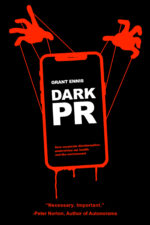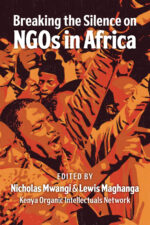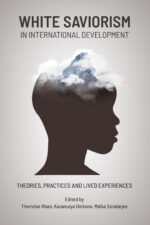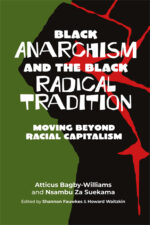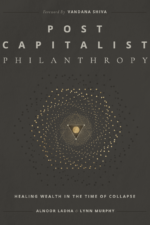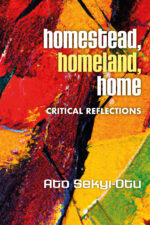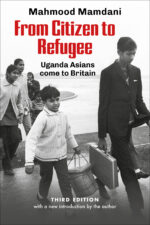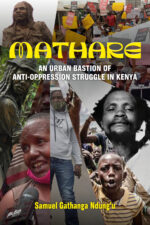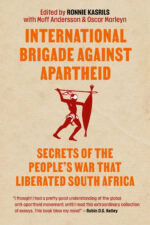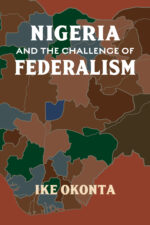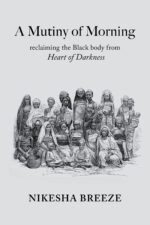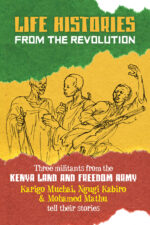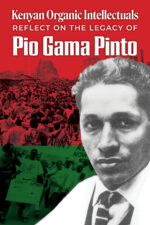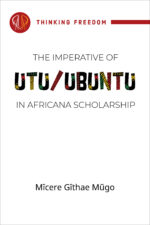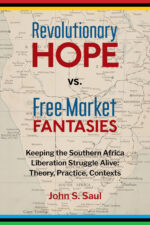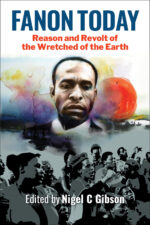- Please choose product options by visiting White Saviorism in International Development: Theories, Practices and Lived Experiences.
-
Black Anarchism and the Black Radical Tradition: Moving Beyond Racial Capitalism
I am glad to see that there is a second wave of Black anarchists since 2015, arriving on the scene. I support the rights of all Black anarchists to build their movements, and I defend the rights of Anarkata. I don’t agree with everything in this book, but that is immaterial. This is an excellent book and well written. — Lorenzo Kom’boa Ervin, activist and author of Anarchism and the Black Revolution and The Progressive Plantation. During his over 50 years as an anarchist, Ervin was a member of the Student Nonviolent Coordinating Committee (SNCC), the Black Panther Party, and Concerned Citizens for Justice. He founded the first Black anarchist federation in North America, Black Autonomy.
This revolutionary book reveals the political power of “stretching” the classical anarchic tradition to critiques of racial capitalism. Bagby-Williams and Suekama deliver an accessible, thought-provoking analysis of two waves of Black American anarchism: that which arose from 20th-century politics of Black liberation and the later reanimation of anarchism triggered by 21st-century killings by American police. The authors layer deep class criticism with insightful case studies not just to retrace a history of Black Anarchism but to make a compelling argument about the diversity of thought that influences the radical tradition. With this book, the historical and continuing contributions of feminist thought, queer activism, and anti-colonial struggle to the movement are made clear. Readers will learn that Black Anarchism has not died due to “progress,” but rather proliferated in light of the American tragedy that is capitalism, imperialism and brutal, carceral control. This book has nuance. Read it now!” — S.M. Rodriguez, Ph.D., Assistant Professor of Gender, Rights and Human Rights, London School of Economics, and author of The Economies of Queer Inclusion: Transnational Organizing for LGBTI Rights in Uganda. www.smrodriguez.com
A necessary and accessible historical analysis of the often overlooked Black anarchism. Bagby-Williams and Za Suekama demonstrate that any revolutionary movement truly committed to a post-capitalist world must constructively engage with this Black radical tradition. — Toni Harrison, Black Canadian writer, community organizer, and host of the podcast Actually Existing Socialism (https://podbay.fm/p/actually-existing-socialism).
Thank you for sharing the pamphlet. Once we started reading it we could not put it down. It was refreshing to learn about the different texts, approaches and experiences of Black anarchism. What stood out the most for us was the inclusion of feminist and queer perspectives moving away from the ableist heteropatriarchy lens. The authors recognize the importance of pan-Africanism as one source of Black anarchism. They also emphasize the Black anarchist insight that all forms of oppression must be fought, to better address the challenges across all oppressed and Black bodies. In an era where movements are advocating for the abolition or reform of oppressive systems, this text helps reflect and reimagine what new inclusive systems may look like. It also makes an important analysis that highlights the complexity and diversity in Black anarchism, which is essential if we are to confront the white savior complex and complacency in addressing inequities and dismantling racial capitalism. —Tinashe Goronga, medical doctor and public health leader in Zimbabwe; coordinator of EqualHealth’s Global Campaign Against Racism affiliated with the international Social Medicine Consortium; and Mandela Washington Fellow for 2022; and Yeukai Chikwenhere, pharmacist and global health researcher in Zimbabwe, co-founder for the Centre for Health Equity, and community organizer for EqualHealth’s Global Campaign Against Racism.
This geography of Black anarchism succeeds in outlining its tendencies, champions, and contradictions. It reminds us that the children of Maroons don’t need no lessons in liberation. That we’ve always used things that confine to redefine. We beat plowshares into swords. And then we rob gun stores, cause who uses swords anymore? —Ben Passmore, comics artist, political cartoonist, creator of the Daygloayhole Series, and author of My Black Friend, which in 2017 won the Ignatz Award for Outstanding Comic.
This work Is an important achievement in clarifying the history and current importance of Black anarchism. The information that the book presents will be new to many readers. For instance, one important component involves the explanations of how hierarchical principles within the Black Panther Party and Black Liberation Army helped generate the emergence of Black anarchism among key party members who later developed their ideas and strategies while in prison. Likewise, the book breaks new ground in demonstrating that Black anarchism has emerged not from the European/ North American anarchist traditions but rather from roots in Pan-Africanism, the Black radical tradition focusing on racial capitalism and the work of Cedric Robinson, and grassroots struggles partly in the U.S. South. An in-depth analysis of the somewhat different but complementary focuses within the two generations of Black anarchism also is very helpful. Finally, the book highlights concrete, contemporary implications for revolutionary strategy, including a perceptive analysis of the compatibilities between socialist and Black anarchist approaches to current transformative struggles. This publication will become widely known and used, because it brings enlightening new ways to understand and to act on the intertwined structures of racial capitalism and the capitalist state.
-
Slave King: Rebels against empire: A Novel
A fictionalised account of a slave rebellion in Roman Sicilia more than sixty years before Spartacus, it tells the story of the slave Younis from Afamia (now in Syria), a mystic and seer who led a great uprising sustained much longer than Spartacus’s. As with Messinian rebellion against Spartan oppression centuries earlier, the West has been slow to take such events seriously and reinstate their presence in popular culture as expressions of human spirituality and resistance. The role of seers as leaders is reminiscent of Ayi Kwei Armah’s The Healers on ancient Africa. This book is a fascinating and brilliant telling of popular struggle. It is a minor classic.— Michael Neocosmos, Emeritus Professor in Humanities, Rhodes University, South Africa, author of Thinking Freedom; Towards a theory of emancipatory politics
I highly recommend Basem Ra’ad’s compelling and deeply researched historical novel about the fire-breathing Syrian slave who challenged Roman might in the second century BCE, seeking independence for his thousands of followers. This little-known story of resistance deserves wide attention … an amazing and important story. — Adrienne Mayor, Department of Classics, Stanford University, author, The Poison King: The Life and Legend of Mithradates, Rome’s Deadliest Enemy
What Basem L. Ra’ad has done in this remarkable novel about slave uprisings is to demonstrate how ‘the history of all hitherto existing society is the history of class struggles.’ He shows why the dominant discourse needs to be revised. A moving story that casts light on many strifes in our times. — Tariq Mehmood, author, Song of Gulzarina, Associate Professor, American University of Beirut
Slave King disrupts two millennia of malign stories about one of antiquity’s original slave revolts. Not cannibals, not demons, but slaves, farmers and herdsmen created a kingdom of equality and compassion. In vivid prose and deep knowledge, Ra’ad re-imagines freedom emerging from Mediterranean multicultural shores. It is a profound re-creation of history in thrilling fiction. —Hilton Obenzinger, author of Witness 2017-2020 and American Palestine: Melville, Twain, and the Holy Land Mania
Slave King recreates a major slave revolt in Sicily led by a Syrian magus turned leader, circa 140-132 BCE, decades before Spartacus. He forges a coalition of slaves, farmers and herders to defeat Roman legions and establish an egalitarian entity. The novel uses biased ancient sources but challenges them to speak for the oppressed and provide alternative cultural-historical perspectives relevant to the present. Among its chapters are scenes of exorcism, crucifixion, ancient marriage customs, a play, and several battles.
-
Post Capitalist Philanthropy
In Post Capitalist Philanthropy, Ladha and Murphy walk us through the deep logic of neoliberalism, the foundations of globalisation and the ideology of corporate free trade… [they] dissect philanthrocapitalism, and they indicate the possibilities of reclaiming the true, economics of the gift, of caring and sharing.— Vandana Shiva, from the Foreword to Post Capitalist Philanthropy.
Ladha and Murphy conduct a “sweeping and engaging ethnography of the archetypal, mythopoetic, institutional, and philosophical territories of capital as a worlding agent and as a carceral dynamic obscuring transformational possibilities…We would need to move and think with our feet again, experimenting beyond money as a paradigm of control. We’ve already begun. ~ Bayo Akomolafe ~ Author, These Wilds Beyond our Fences: Letters to My Daughter on Humanity’s Search for Home and founder of The Emergence Network
This book asks a daring question: can wealth be reappropriated to restore balance to our broken world? A key resource for anyone eager to rethink philanthropy and“ economics in the 21st century. ~ Jason Hickel ~ Visiting Senior Fellow at the London School of Economics, author of The Divide and Less is More
Each page contained in this text“is a reminder of what my heart already knows is true, with information and inspiration that lifts the sense of possibility for making deep change together.
~ Gail Bradbrook ~ Co-founder, Extinction RebellionPost Capitalist Philanthropy is an essential mystical revolutionary handbook that should be required reading for anyone involved in philanthropy.
V (formerly Eve Ensler) —Author of The Vagina Monologues***
Transition Resource Circle thanks Daraja Press, the non-profit Pan-African publisher focused on social justice, for their collaboration in making this book a reality. All proceeds from the book are evenly split between Daraja Press and Transition Resource Circle’s solidarity fund.
-
Episodes from a colonial present
Postcolonial critique deconstructs global inequality in its epistemic and material dimensions. This collective comic project illuminates everyday life’s coloniality as well as the decolonising potential of everyday struggles in the spaces, discourses and practices of so-called ‘global development’. -
From Citizen to Refugee: Uganda Asians Come to Britiain
USD $ 15.50In his introduction to this new edition of From Citizen to Refugee: Uganda Asians Come to Britain, Mahmood Mamdani reminds us that long before 1972, most Ugandan ‘Asians’ had already been disenfranchised by law, both Ugandan and British. Despite a global industry that insists otherwise, Uganda Asians are a poor fit as victims: there was no large-scale loss of life during the expulsion, nor were there massacres of Asians, only of ‘indigenous’ peoples. Asians in Uganda, as in East or Southern Africa, he argues, were immigrants, not settlers: immigrants are prepared to be a part of the political community, whereas settlers ‘create their own political community, a colony, more precisely, settler colonialism.’ Mamdani insists that there is no single Asian legacy. there are several and they are contradictory. The Asian question in Uganda remains, but it is no longer the original Asian question. But it does allow us to think more broadly. Just as US law recognizes African Americans as Americans of African descent, so too must those of Asian origin in Africa consider themselves, and be considered, Asian Africans.
It is in his bittersweet and touching book on the Asian expulsion from Uganda that one can trace the beginnings of author and intellectual Mahmood Mamdani’s world-view.. … In From Citizen to Refugee: Uganda Asians Come to Britain Mamdani offers portraits of people reduced to a vegetative existence in refugee camps, feeling the burden of not being fluent in English and struggling with the uncomfortably cold weather. Not surprisingly, these few months played a pivotal role in shaping Mamdani’s theoretical and political leanings, and it is here that one can locate his preoccupation with the formation of racial, ethnic and class identities during the colonial era and his overarching concern with issues of citizenship.
— Bhakti Shringarpure, Associate Professor, University of Connecticut, Editor-in-chief, Warscapes, Founder, Radical Books Collective -
Settler Colonialism
Settler Colonialism examines the genesis in the USA of the first full-fledged settler state in the world, which went beyond its predecessors in 1492. The text originates from Roxanne Dunbar-Ortiz (2021) “Not A Nation of Immigrants: Settler Colonialism, White Supremacy, and a History of Erasure and Exclusion.
-
MATHARE: An Urban Bastion of Anti-Oppression Struggle in Kenya.
History is written by the victors of any war. But what happens when the victors forget to write down their history or omit the cog of the struggle? This is the untold story of Mathare Slum that has never been told to the world: of the role it played in anti-colonial struggle and the planning ground for the Mau Mau struggle which culminated with the fall of the British Colonial Empire in Kenya in the midnight of December 12th 1963. Mathare has also played a critical role in anti-oppression struggle against the four regimes that we’ve had since independence and continues to do so up to date. This history has not been documented and has only been done piecemeal. This has overtime eroded the rich history of Mathare and led to a distorted history of once a planning ground and a bulwark of Kenya Land and Freedom Army (KFLA). The current generation are not cognizant with the critical role Mathare played in the independence of our country.
Presently, Mathare is majorly known for all the negative reasons and its proximity to Mathari Mental Hospital has contorted its image to the outside world. My story tries to re-tell the history of Mathare from an informed insider perspective by threading the struggles from the colonial era to the present day and the role it has played in agitating for social justice.
My story brings to view the past history of this informal settlement in the heart of Nairobi, the present struggle and the promising future through community organizing.
-
International Brigade Against Apartheid: Secrets of the People’s War That Liberated South Africa
USD $ 27.00Edited by Ronnie Kasrils with Muff Andersson and Oscar Marleyn.
First published by Jacana Media (Pty) Ltd in 2021, ISBN: 978-1-4314-3202-8, this Daraja Press edition is available in North America and East Africa
I thought I had a pretty good understanding of the global anti-apartheid movement until I read this extraordinary collection of essays. This book blew my mind!
—Robin D.G. KellyWe hear for the first time from the international activists who worked secretly for the ANC’s armed wing, Umkhonto we Sizwe(MK), in the struggle to liberate South Africa from apartheid rule. They acted as couriers, provided safe houses in neighbouring states and within South Africa, helped infiltrate combatants across borders, and smuggled tonnes of weapons into the country in the most creative ways. Driven by a spirit of international solidarity, they were prepared to take huge risks and face great danger.
-
Mental Health and Human Rights in Palestine
This is a biography of the life of Dr Eyad El Sarraj, Gaza’s pioneering psychiatrist and founder of the Gaza Community Mental Healthcare Programme, written by his son, Wasseem El Sarraj. It is also a history of Palestine with a focus on Gaza. Eyad’s life was intimately intertwined with Palestine’s struggles so his choices and reactions reflected many of the major historical moments of the last 70 years. The book is an effort to provide a perspective on how the forces around him impacted his life, and how he took control of what he could achieve in an intractable situation. The book is interspersed with Wasseem’s own reflections as a mixed-race Palestinian, and as someone who has lived under occupation in Gaza.
-
Nigeria and the Challenge of Federalism
The book identifies three key moments in Nigeria’s experience with federalism and makes the argument that a complex and socially-diverse country like Nigeria can only be successfully governed by a truly federal arrangement, and not the present unitary contraption that has only delivered poverty, social unrest and the powerful centrifugal forces that are now threatening the very existence of the country itself. The time has come, write Ike Okonta, to convene a conference with sovereign powers to design a federal constitution for the country. The current process of amending the 1999 Constitution by the National Assembly will not suffice. The document is so hopelessly flawed that only its discarding and a fresh effort at constitution-making will suffice.
Biographical Notes
Ike Okonta was, until recently, a Leverhulme Early Career Fellow in the Department of Politics at the University of Oxford. Currently, he is Coordinating Fellow of the New Centre for Social Research, Abuja, Nigeria. He is author of Where Vultures Feast: Shell, Human Rights and Oil (2003) Paperback; When Citizens Revolt: Nigerian Elites, Big Oil and the Ogoni Struggle for Self-Determination (2008); Biafran Ghosts: The Massob Ethnic Militia and Nigeria’s Democratisation Process (2012); The Failure of Leadership in Africa’s Development (2020)
Table of Contents
1. Nigeria’s Flawed Federalism: The Colonial Roots, 2. Killing Federalism: The Soldiers Step In, 3. Consolidating Centralism: The Second Republic and After, Challenging Centralism or the Spirit of Ken Saro-Wiwa, 5. Conclusion: Bringing Back Federalism. 6. Acknowledgements.
BISAC and Keywords
POLITICAL SCIENCE / Colonialism & Post-ColonialismPOLITICAL SCIENCE / ConstitutionsPOLITICAL SCIENCE / World / AfricanKeywords: Nigeria, Federalism, Sovereignty, National Assembly, biafra, Ogoni, Ken Saro-WiwaAudienceGeneral/Trade – Adult fiction and nonfiction -
A Mutiny of Morning: Reclaiming the Black Body from Heart of Darkness
Nikesha Breeze has taken pages from Joseph Conrad’s Heart of Darkness, taken his words, and forced them to leave his colonized mind. She has made the words her own in poetic form. She illuminates the invisible Black voices inside, a radical, surgical, and unapologetic Black appropriation, at the same time as a careful birthing and spiritual road map. The resulting poems are sizzling purifications, violent restorations of integrity, pain, wound, bewilderment, rage, and, sometimes, luminous generosity.
The violent, scathing white supremacy of Joseph Conrad’s Heart of Darkness is traversed page by page and word by word in this brilliant prayer/poem—a work of reclamation, redemption, rescue, and repossession. — Wende Marshall, co-editor Insurrectionary Uprisings: A Reader in Revolutionary Nonviolence and Decolonization
-
Life Histories from the Revolution: Three militants from the Kenya Land and Freedom Army tell their stories
In the early 1970s, Donald Barnett — who worked with Karari Njama to produce Mau Mau From Within (published by Daraja Press) — also worked with three militants of the Kenya Land and Freedom Army to enable them to tell the story of their experience in fighting for freedom and against British colonialism.
These rarely acknowledged militants were Karigo Muchai, Ngugi Kabiru and Mohamed Mathu. Their stories were published in 1973 by LSM Information Center (Richmond, British Columbia, Canada) as part of a series entitled Life Histories of the Revolution, as The Hardcore: The Story of Karigo Muchai; The Man in the Middle by Ngugi Kabiro; and The Urban Guerrilla by Mohamed Mathu.
As part of its mission of Nurturing reflection, sheltering hope and inspiring audacity, Daraja Press is pleased to republish the three booklets as a single volume that will help a new generation of activists — Kenyan and international — reflect on a history that might inspire audacious struggles to continue the struggle for freedom that was the goal of the Kenya Land and Freedom Army.
Donald Barnett wrote the foreword to each of the booklets as follows:
One of our objectives in launching this series of LIFE HISTORIES FROM THE REVOLUTION is to provide a medium through which individual members of these classes-in-motion within the revolution can speak. We also believe it important that they be heard by those of us who comprise imperialism’s privileged and literate metropolitan minority. Their recounted lives throw our own into sharp relief, while at the same time they offer us fresh perspectives on the processes of repression and revolution from a unique vantage point: from below. Their life stories provide us with a window into the qualitative—as distinct from the merely statistical and quantitative—aspects of class conflict, thus enabling us to better understand and weigh the various factors at work in transforming oppressed masses into revolutionary classes. Again, their remembered life experiences can provide us with significant insights into the dialectical relationships between material and subjective conditions which shape the revolutionary situation, embrace the revolutionary transformation of individuals and classes alike, and move humanity forward toward a new international social formation.
Not all of the individuals whose life histories are included in this series are illiterate peasants or workers. Some are educated defectors from petty bourgeois classes who have joined the revolution and identified their interests with those of the oppressed masses in a very concrete way. They constitute a very important part of the revolutionary vanguard—i.e., the middle cadres who articulate the relationship between leadership and base, who carry forward the military and civilian programs in day-to-day contact with the armed militants and popular masses. The selfless dedication, integrity, comportment and skill of the middle cadres is an essential ingredient within any successful revolutionary process.
The life histories in this series have been recorded and prepared as historical documents from the revolutionary struggles of our time. The techniques and methods employed at each stage of the process, from initial contact to final editing, have therefore been chosen or fashioned with the purpose of guaranteeing the authenticity and integrity of the life history concerned. These stories, then, to the best of our ability to make them so, constitute a body of data and testimony as revealed by a few of those history-makers normally condemned to silence while others speak on their behalf.
We would like to express our thanks to Ole Gjersta, Steve Goldfield and others involved in the LSM Information Centre for making these booklets available.
-
Kenyan Organic Intellectuals Reflect on the Legacy of Pio Gama Pinto
Launch of the book in Nairobi!
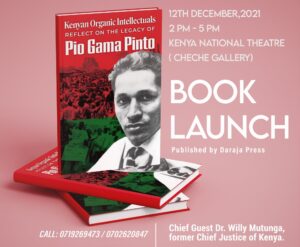
Red salute to the organic intellectuals of Kenya for putting together their reflections in this absolutely fascinating compilation. As I read it, I want to read more and [the] more I read my appetite to “meet” our unsung heroes in this part of Africa deepens. https://t.co/wcLHssuiBT
— Issa Shivji (@IssaShivji) November 30, 2021
Pio Gama Pinto has long been the ‘unsung martyr ‘ in Kenya’s revolutionary history. It is a real mark of the consciousness of the new generation of organic intellectuals from the social justice centres that they chose to read, discuss, critique, and write about Pinto. A must read! —Dr. Willy Mutunga, Chief Justice & President of Supreme Court, Republic of Kenya, 2011-2016
I am inspired by reading your thoughts. Pio has shown you how: Constancy in your ideals.
Perseverance in your actions. Use every opportunity to further justice. Use every opportunity to subvert injustice. Speak out. Always place the Alternative before the people. Find what is already available, small or big, to further social justice. Much is already in the Constitution and laws. Enforce it. Pio created political space from blank walls and barbed wire. Finishing your book, I felt renewed. I thank you.
– Pheroze Nowrojee, Senior Counsel, author of Pio Gama Pinto, Patriot for Social Justice (2007).
This booklet on Pio Gama Pinto has been produced in the tradition of ‘looking back, in order to move forward’ to not only salvage history but also to use it as a mirror to reflect on the current political, economic and social conditions in Kenya. The essays, dubbed reflections, that appear in the booklet are a product of the efforts and dedication of young women and men under the banner of the ‘Organic Intellectuals Network’ in Kenya. We use the concept of ‘organic intellecutal’ as developed by Antonio Gramsci.
Members of the Organic Intellectual Network selected the book Pio Gama Pinto: Kenya’s Unsung Martyr 1927-1965 by Shiraz Durrani (Vita Books, 2018) as a basis for discussion for celebrating and remembering the life of Pio Gama Pinto, Kenya first Martyr, a dedicated and selfless individual in the struggle for freedom in Kenya. Pinto has not been fully appreciated and recognized for his efforts in the fight for independence and post-independence struggles that were characterized by ideological confrontation between capitalism and socialism. Each of the 14 participants in the discussions were asked to write their reflections on what they had learned, based on their daily struggles as activists, students and revolutionary community organizers in their communities. These discussions were accompanied by several activities at the beginning of 2021 to remember Pio Gama Pinto on the 56th anniversary of his assassination in 1965. These activities included reflections at his memorial grave and the production of a Pio Gama Pinto podcast.
The short book aims at retrieving and providing a genuine national direction for the struggles of Kenyans based on historical clarity devoid of any obscurity and distortion. It is our hope that these simplified reflections will introduce Pio Gama Pinto and socialism to the Kenyan people and across the world.

